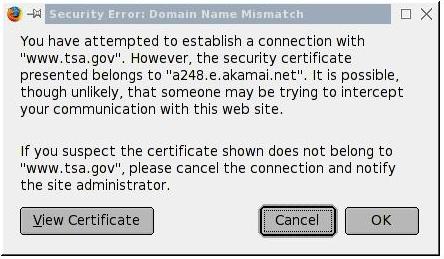08/19/08
Like a lot of people, we are using VMWare in development to test our programs.
For way too long now, I have been battling with VMWare Workstation 5.5 having a clock that's running way too fast in the guest OS.
VMWare nowadays has some knowledge base articles about it, e.g., here and here.
From these articles, I understand that the problem has to do with the power management on the host machine, which in my case is Windows XP.
There are also several threads in the VMWare forums about this problem, here and here.
I have done what was suggested in these threads, in particular, I have disabled the "Cool & Quiet" setting in the BIOS. Unfortunately, the BIOS for my Dell Dimension E521 doesn't have any way to change the HPET.
Despite all of this, the guest OS still runs too fast when the host machine has been idle for some time (e.g., over night). Since I am trying to run timing tests over night, that's pretty much a killer for me...
I am really wondering why VMWare hasn't fixed this yet.
Update: AMD has what they call a "Dual-Core Optimizer" utility. That finally seems to have solved the problem. I installed it, and kept the VM running over the weekend. And lo and behold, the clock in the VM still runs fine this Monday morning.
08/17/08
TSA (and/or Akamai) apparently can't even get one of the easiest things on their Website right...
Going to the TSA website using https results in this security warning message:

Besides all the other things they can't get right with real-life security (such as the completely idiotic x-raying of shoes, or their liquids policy), they are apparently also clueless with respect to cyber security.
This was originally reported in the Risks Forum.
08/16/08
Recently, I parked next to a car with a rather interesting California license plate:
The car was apparently converted to use natural gas, and the license plate read SCRWOIL (I snapped a picture with my cellphone):

I had to laugh, but on reflection, I was actually surprised that the CA DMV let this go through. I thought they would deny vanity plate applications that contain swearwords. In this case, I don't mind much, of course...
08/09/08
The EFF has send out a press release regarding three MIT students who were ordered by a federal judge to cancel their presentation about vulnerabilities they discovered in Boston's public transportation system.
This is of course just another attempt by an inept public entity to keep their stupidity under wraps. When will these guys learn that "security through obscurity" doesn't work?
And of course, they now got themselves the "Streisand effect"...
Their actions pushed the presentation out of its relative obscurity, and it will now get a much much wider distribution. In other words, instead of suppressing it, they ended up advertising it to the world... Cluelessness at work...
The slides for the presentation are at the time of this writing online at MIT.
Just in case they vanish, I also put them up locally (thanks to rmmst49 for providing a link in his comment to the LWN article discussing this.)
Update: CNet reports that the judge has lifted the gag order.
08/08/08
I've had DSL from AT&T (the only choice where I live) for quite a while now.
Recently, it had been rather slow, and two days ago, it completely broke.
So, I called out to the dreaded AT&T Tech Support.
After being on hold for 20 minutes or so (due to the "large call volume"), the person I got on the line was performing some tests, and noted that the "line is weak."
No sh*t ![]() . Why else would I call them?
. Why else would I call them?
The guy said that I would get a call within an hour to have a technician scheduled, and advised me that it is free if it is a problem with the line, but if it is in my house, it would cost me. Fine. Whatever. I know my setup, there is no problem with my Linux box.
Anyway, I get a call within an hour, but it is some automated crap, which hangs up in the middle of the call for no reason. Since it was getting late, I decided to call back the next day.
The next day, another tech support guy, told me that the automated system hangs up often... So they know it is crap. Why are they using it, then??? At least he scheduled the technician while I was on the phone with him.
Of course, they always schedule a 4-hour window, in this case noon to 4pm. Luckily, and unlike my experience with, e.g., the cable company, the technician was already working on it when I showed up at noon. Less than 1/2 hour later the problem was fixed. It was a cabling issue in their outside box.
Good work from the technician, she knew what she was doing and was professional and competent, but AT&T needs to fix their phone tech support.